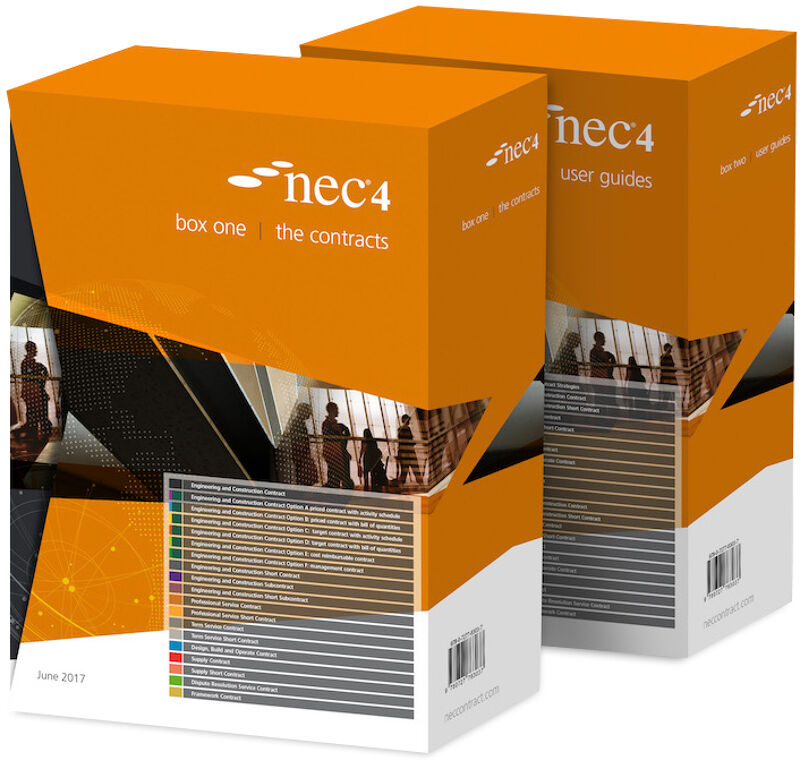
NEC Contracts
Discover the full suite of NEC contracts, endorsed by governments and industry users worldwide. NEC contracts can cover projects large and small, and through any stage of a project lifecycle.
Find out about the commercial benefits of using NEC Contracts.

NEC’s mission from the outset has been, ‘to provide clarity, flexibility and stimulate good management’. No other contract suite aspires to improve the procurement and delivery process, rather than just facilitate it.
All NEC4 contracts are designed around the following three principles:
Uniquely, one of the foundation clauses of every NEC4 contract states the parties are to act, ‘in a spirit of mutual trust and co-operation.’ This differentiates them from traditional contracts, which tend to follow a more adversarial, ‘us and them’ approach.
To many users, the ‘jewel in the crown’ of NEC4 contracts is the ‘early warning’ process. If either party becomes aware of any matter which could affect time, cost or quality, they are required to notify the other party immediately. This is promptly discussed at an early warning meeting to decide how best to mitigate the risk and aiming to decrease the time taken to resolve the issue.
If there are changes to the amount of work the supplier has to do, there are clearly defined processes to handle changes in costs and time called ‘compensation events’. The contracts also provide a clear and precise process for evaluating the cost and time implications of compensation events, which include events arising from client scope changes, and the contract sets out the process to determine the time and cost effects, within a set timescale.
The result is that the programme and budget are continually updated and agreed as changes and events happen. There should be no surprises at the end of an NEC4 Contract. All works and supply contracts also allow for early contractor/supplier involvement.

Given every procurement process and project is unique, it is difficult to do back-to-back financial comparisons between NEC4 and other contracts. But wherever NEC has been trialled in the world it has generally been adopted for further use and, in many cases, become the default contract suite.
Where you will save money using NEC4 is when changes happen, unexpected or otherwise. In accordance with NEC4 processes, each event will be collaboratively, efficiently and quickly dealt with to ensure minimum impact on the overall cost and programme. It will not be left to a potentially expensive and time-consuming negotiation and possible dispute at the end of the contract. For example, multiple quotations can be requested from the supplier to deal with the change in terms of different time and/or cost scenarios. This allows the client to select whichever quotation best suits the their business requirements. It also provides the client with a better forecast of the final completion date and final cost payable, enabling actions to be taken early where budget or time constraints are critical.

Discover the full suite of NEC contracts, endorsed by governments and industry users worldwide. NEC contracts can cover projects large and small, and through any stage of a project lifecycle.